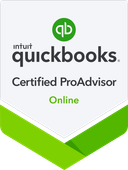Simplify Finances, Amplify Results
Fueling Your Growth Through Financial Clarity
HOA Services
Need reliable financial support for your HOA?
Click to learn more here
Why Gordian Financial?
Let our business take care of yours! We offer many levels of support to businesses depending on their needs. From full-time bookkeeping to one-time services, you are sure to find the support you need.
Simplify Your Bookkeeping Processes
The Gordian Financial Difference
We Will Help You Every Step Of The Way
What makes Gordian Financial different from the competition?
Step 1
Affordable
At Gordian Financial, we believe expert financial support should be accessible to businesses of all sizes. Our affordable bookkeeping and financial services are designed to fit your budget without compromising on quality. Whether you're a growing startup or an established small business, we offer flexible pricing and customized solutions that deliver real value.
Step 2
Responsive
At Gordian Financial, we pride ourselves on being responsive and reliable financial partners. Our team is quick to answer questions, provide updates, and adapt to your evolving business needs. Whether you're facing an urgent financial task or need ongoing support, we're just a message or call away. With a dedicated team that understands your goals, you’ll never feel like just another client.
Step 3
Community Minded
At Gordian Financial, we are more than just a service provider, we're a team that genuinely cares about the communities we serve. As a community-minded financial partner, we’re committed to building lasting relationships, supporting small businesses, and creating positive impact both locally and beyond. We believe in people-first solutions, and that strong businesses help build strong communities.
Affordable Bookkeeping
Services
We help you with outsourced bookkeeping services and financial controls until you reach the point that you can hire an in house bookkeeper.
What We Offer
Popular Services
Accounts Receivables
Efficient accounts receivable management keeps your cash flow steady. We handle invoicing, payment tracking, and collections to ensure you get paid faster and stay financially healthy.
Accounts Payable
Effective accounts payable management helps you control expenses and maintain strong vendor relationships. We handle bill processing, payments, and reconciliations to keep your operations running smoothly.
Reconciling Accounts
Regular account reconciliation ensures your financial records are accurate and up to date. We compare statements, identify discrepancies, and resolve issues to keep your books balanced and reliable.
Payroll
Accurate payroll is essential for business success. We manage wage calculations, tax withholdings, and direct deposits to ensure your employees are paid correctly and on time.
Forecasting
Gain clarity and control over your financial future. We help you project income, expenses, and cash flow, so you can make strategic decisions with confidence and plan for sustainable growth.
Preparing 1099s
Avoid the stress of tax season. We handle the preparation and distribution of 1099 forms for your vendors—accurately, on time, and in full compliance with IRS regulations.















